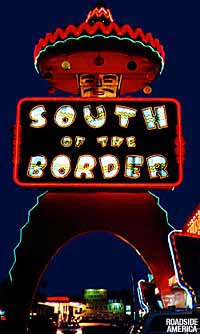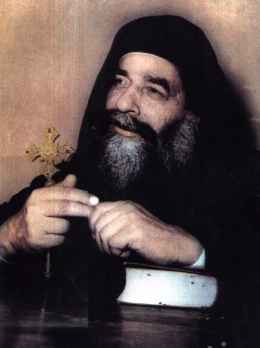
A
Puritan of
16th and
17th century England was any person seeking "purity" of
worship and
doctrine, especially the parties that rejected the
Reformation of the
Church of England, and those who justified separation from the Church of England following the
Elizabethan Religious Settlement are commonly called
"Puritans" by historians and critics. However only some Puritans were in favor of separating from the English Church, which was currently under King James I. Most Puritans only wanted to change certain aspects of the church. Later groups are called "puritan", not necessarily favorably, by comparison to these
low church Anglicans and
Calvinistic Non-conformists.
Originally used to describe a third-century
sect of strictly legalistic
heretics, the word "Puritan" is now applied unevenly to a number of
Protestant churches from the late 16th century to the present. Puritans did not originally use the term for themselves. It was a term of abuse that first surfaced in the 1560s. "Precisemen" and "Precisions" were other early antagonistic terms for Puritans who preferred to call themselves "the godly." The word "Puritan" thus always referred to a type of religious belief, rather than a particular religious sect. To reflect that the term encompasses a variety of ecclesiastical bodies and
theological positions, scholars today increasingly prefer to use the term as a common noun or adjective: "puritan" rather than "Puritan." In fact, spouses (albeit, in practice, mainly females) were disciplined if they did not perform their sexual marital duties, in accordance with 1 Corinthians 7 and other biblical passages. Because of these beliefs, they did publicly punish
drunkenness and sexual relations outside of marriage.
Alexis de Tocqueville suggested in
Democracy in America that the
Pilgrims' Puritanism was the very thing that provided a firm foundation for American democracy, and in his view, these Puritans were hard-working, egalitarian, and studious. The theme of a religious basis of economic discipline is echoed in sociologist
Max Weber's work, but both de Tocqueville and Weber argued that this discipline was, not a force of economic
determinism, but one factor among many that should be considered when evaluating the relative economic success of the Puritans. In
Hellfire Nation, James A. Monroe suggests that some opposing tendencies within Puritanism—its desire to create a just
society and its moral fervor in bringing about that just society, which sometimes created
paranoia and intolerance for other views—were all at the root of America's current political landscape.
In the
United States, "Puritan" has not always been the only acceptable spelling. Through the 20th century, "
Puritain" was an acceptable alternative spelling in
British English. During the 17th and 18th centuries in England, the word was spelled both with and without the second
i. "Puritain" was more common in the 16th century. The word derives from "purity" in English, and the suffix meaning "dweller"/"practitioner" can be spelled -ain or -an, depending upon the language.
An emphasis on private study of the
Bible A desire to see education and enlightenment for the masses (especially so they could read the Bible for themselves)
The
priesthood of all believers Simplicity in worship, the exclusion of vestments, images, candles, etc.
Did not celebrate traditional holidays that they believed to be in violation of the
regulative principle of worship.
Believed the
Sabbath was still obligatory for Christians, although they believe the Sabbath had been changed to Sunday.
Some approved of the
church hierarchy, but others sought to reform the episcopal churches on the
presbyterian model. Some separatist Puritans were presbyterian, but most were
congregationalists.
List of Puritans Independents Addison, Albert Christopher The Romantic Story of the Puritan Fathers and their founding of new Boston 1912 published by L C Page Boston Mass USA Anderson, Virginia Dejohn (1993). New England's Generation: The Great Migration and the Formation of Society and Culture in the 17th Century. Cambridge University Press. ISBN 0-521-44764-X. Beeke, Joel R.. Puritan Reformed Spirituality. Evangelical Press. ISBN 9780852346297. Warren, John (1993). Elizabeth I: Religion and Foreign Affairs. Hodder and Stoughton, p. 104. ISBN 0-340-55518-1. Beeke, Joel, and Pederson, Randall,
Meet the Puritans: With a Guide to Modern Reprints (2006)
ISBN 9781601780003 Bennett, Arthur G., ed.,
The Valley of Vision: A Collection of Puritan Prayers and Devotions (While not directly about the puritans, this anthology gives a representative overview of the ways they viewed their relationship with God.)
Bozeman, Theodore Dwight,
To Live Ancient Lives: The Primitivist Dimension in Puritanism Bozeman, Theodore Dwight,
The Precisionist Strain: Disciplinary Religion and the Antinomian Backlash in Puritanism to 1638 Brachlow, Stephen,
The Communion of Saints: Radical Puritan and Separatist Ecclesiology, 1750–1625 Bremer, Francis J.,
John Winthrop: America's Forgotten Founding Father Collinson, Patrick,
The Elizabethan Puritan Movement Collinson, Patrick,
Godly People Collinson, Patrick,
Religion of Protestants Foster, Stephen,
The Long Argument Gatiss, Lee,
The Tragedy of 1662: The Ejection and Persecution of the Puritans,
ISBN 9780946307609 Graham, Judith, "Puritan Family Life: The Diary of Samuel Sewall"
Haigh, Christopher,
English Reformations: Religion, Politics, and Society under the Tudors Haigh, Christopher, "The Continuity of Catholicism in the English Reformation," in
Past and Present, No. 93. (Nov., 1981), pp. 37–69.
Hall, David D.,
Puritans in the New World: A Critical Anthology Hall, David D.,
Worlds of Wonder, Days of Judgment: Popular Religious Belief in Early New England Hawthorne, Nathaniel.,
The Scarlet Letter (1850)
Kapic, Kelly M. and Randal Gleason, eds.
The Devoted Life: An Invitation to the Puritan Classics Kizer, Kay. "
Puritans"
Lake, Peter,
Moderate Puritans and the Elizabethan Church Lake, Peter, "Defining Puritanism—again?" in Bremer, Francis J., ed.,
Puritanism: Transatlantic Perspectives Leverenz, David, "The Language of Puritan Feeling: An Exploration in Literature, Psychology, and Social History"
Lewis, Peter,
The Genius of Puritanism Logan, Samuel T. Jr.,
Reformation for the Glory of God Packer, J. I.,
A Quest for Godliness: The Puritan Vision of the Christian Life, Crossway Books: 1994 (reprint),
ISBN 0-89107-819-3 Monaghan, Jennifer, "Learning to Read and Write in Colonial America"
Ryken, Leland,
Worldly Saints: The Puritans As They Really Were,
ISBN 0-310-32501-3 Tyacke, Nicholas,
Anti-Calvinists: The Rise of English Arminianism Underdown, David,
Fire From Heaven Morgan, Edmund S.,
The Puritan Family Morgan, Edmund S.,
The Puritan Dilemma: The Story of John Winthrop,
ISBN 0-321-04369-3 Miller, Perry,
The American Puritans: Their Prose and Poetry Packer, J.I.,
A Quest For Godliness: The Puritan Vision of the Christian Life Porterfield, Ann, "Female Piety in Puritan New England: The Emergence of Religious Humanism"
Saxton, Martha, "Being Good: Women's Moral Values in Early America"
Vaughn, Alden and Francis Bremer, "Puritan New England"
Larousse Dictionary of Beliefs and Religions Oxford Dictionary of World Religions A Puritan's Mind, some writings of the Puritans and their admirers
Puritan sermons Extensive Puritan resources on Monergism.com



 Further reading
Further reading

 Controversy
Controversy